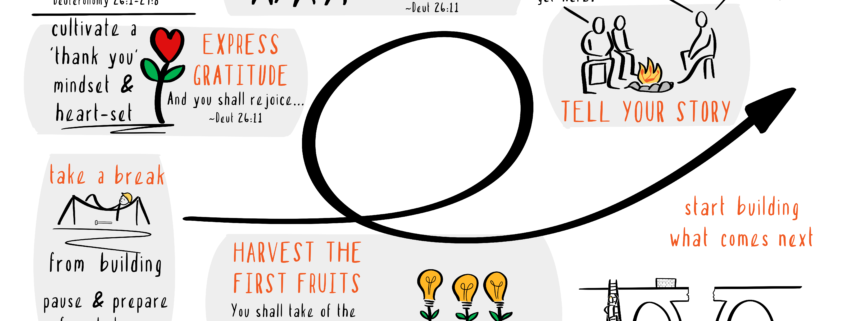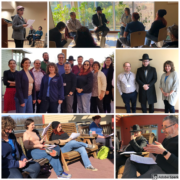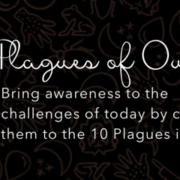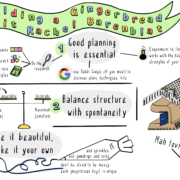Everyone Needs a Break
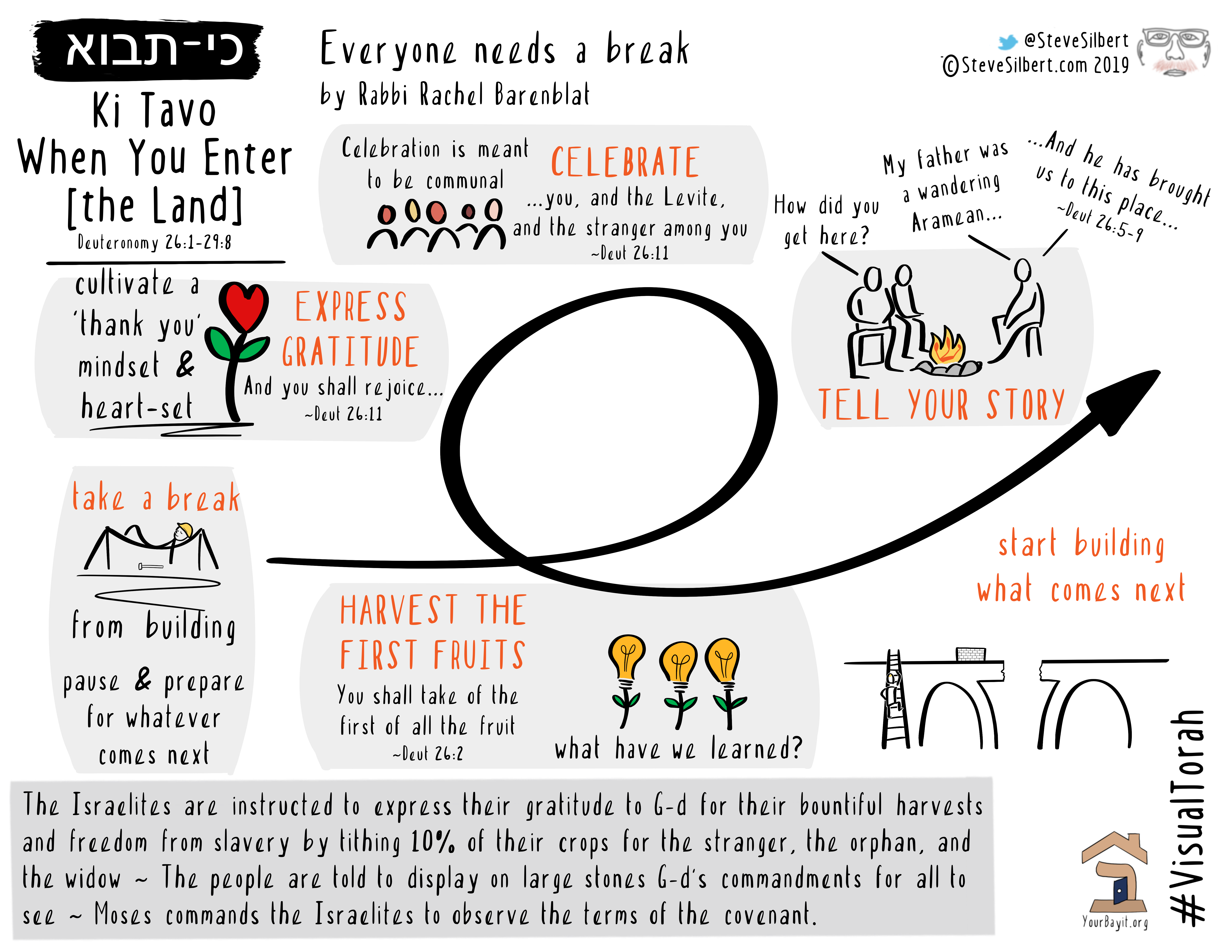
Part of a yearlong Torah series on building and builders in Jewish spiritual life.
This week’s Torah portion, Ki Tavo, begins with a set of instructions for when we enter the Land of Promise. Torah tells us to take our first fruits to a special place, tell a ritualized story, articulate gratitude for where we are, and enjoy the bounty of the harvest. In this ancient first-fruits ritual, I find a set of four instructions for us as builders.
- Take first fruits
In the Biblical paradigm, this meant the literal first fruits of the season’s harvest. Today when few of us farm (or even garden!), the first fruits are likely to be metaphorical. Maybe they’re the lessons we learned from the most recent round of building. Maybe they’re signs that we’ve completed a first step and it’s time to pause and prepare for whatever comes next. What are the fruits of your building labors this year? What have you built? Of what can you feel proud?
- Tell a story
Torah instructs us to go before the priest in the place where God has chosen to establish God’s name. For us, this might mean connecting with someone who’s operating in a leadership role right now. Or it might mean seeking out a trusted friend who can listen with keen attention and open heart. One way or another, go someplace that is meaningful, with someone who can listen. And then, Torah says, tell the story that begins “My father was a wandering Aramean…”
In Torah’s context, this is the story that leads to our people’s enslavement in Egypt. From that going-down flows a rising-up: that descent leads to our liberation, and to the next chapter of our communal narrative as a free people in relationship with the Holy. What might it mean for you, as a builder, to tell the story of where you came from and how you got to where you are? Can you see your descents as being for the sake of ascent, for the sake of growth and potential?
- Articulate gratitude
Telling the story leads to bowing in gratitude before God. This may be the most useful tool in this week’s toolbox: gratitude. When we cultivate a mindset (and heart-set) of gratitude, then everything we encounter can become an opportunity to say thank You. And it’s not enough just to feel it: we have to speak it. Much like the way atonement isn’t considered real unless we speak our missteps aloud (Hilchot Teshuvah 1:1), gratitude has to be named and spoken.
- Celebrate
Once we’ve identified the fruits of our labors, told our story, and spoken gratitude aloud, then we can join — in Torah’s paradigm, “with the Levite and with the stranger in your midst” (Deut. 26:11) — in celebration. Celebration is meant to be communal. We share our abundance with the Levite (those who have dedicated their lives to service) and with the stranger. We build the Jewish future not only for our own sake, but also for the sake of those whom we don’t yet know.
These ancient instructions form the outline of the first-fruits ritual once followed in the Land of Promise and then at the Temple when it stood. I like to think that wherever we are can be a Land of Promise, if only we open ourselves to divine presence, if only we build in an upright and ethical way. Wherever we are can be holy ground. Wherever we are, that’s where we build.
As we prepare for the end of the Jewish year, what is the building work we can lift up before God as we tell the story of how we came to be who and where we are? Let’s prime the pump of gratitude for all that we have, and all that we’ve been blessed to participate in building… and let’s celebrate as we prepare to take up our tools again in the new year to come.
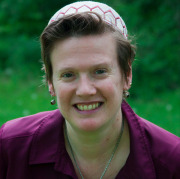

By Rabbi Rachel Barenblat. Sketchnote by Steve Silbert.

